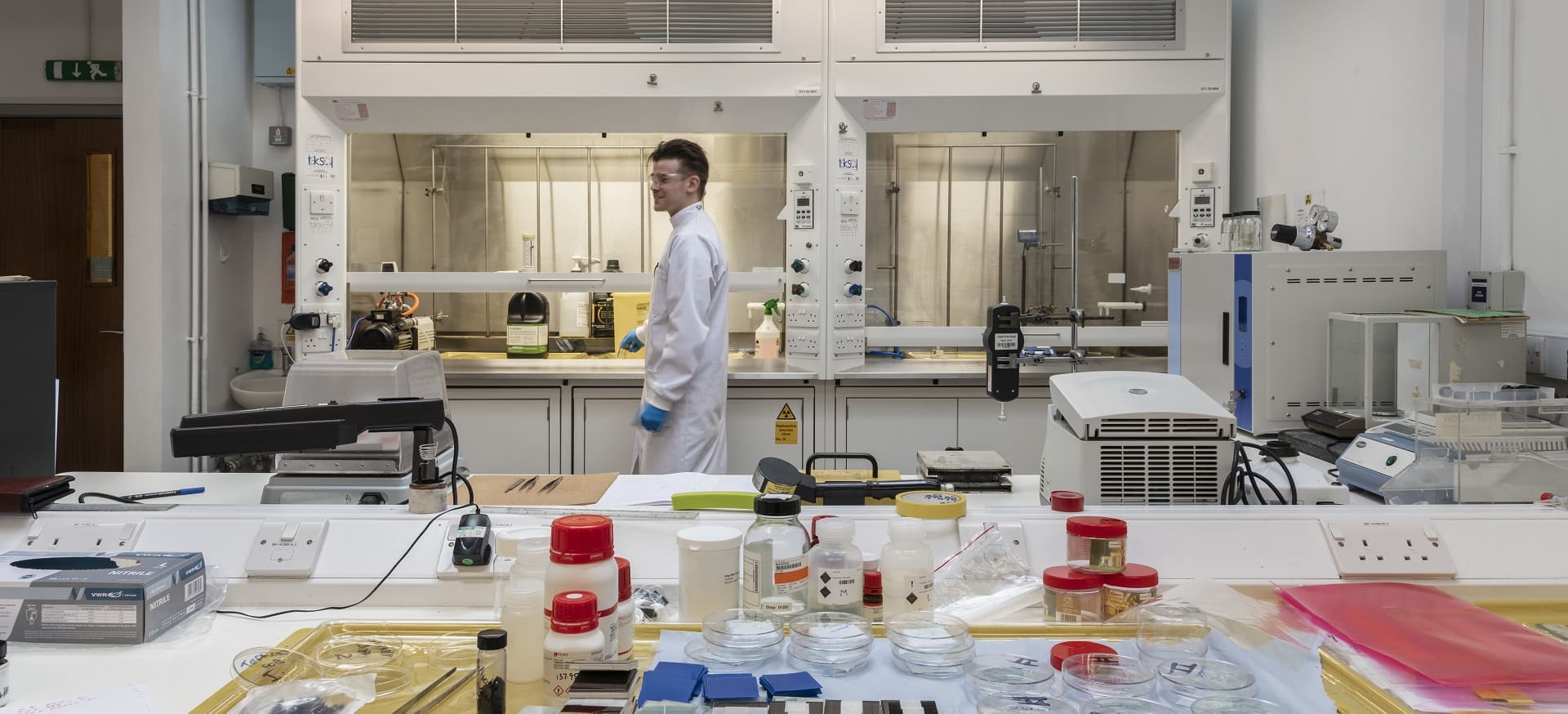Immunocompatibility Group
Led by Professor Neill Liptrott, the Immunocompatibility Group aims to understand the concepts and mechanisms underlying the interface of advanced materials and complex medicines with the immune system; to support their translation to clinical use, gain insight into the fundamental biology behind them, and utilise that knowledge to create new materials for immune and biological engineering.
To date, they have worked with a wide variety of complex medicines, including lipid nanoparticles, polymers, virosomes, and exosomes for the delivery of diagnostics, small molecules, biopharmaceuticals, biopolymers, and nucleic acids. The group's work on complex medicines has expanded to encompass bacteriophages, biomaterials, and biotherapeutics.
Group lead
Professor Neill Liptrott
Neill is a Professor within the Department of Pharmacology and Therapeutics, holding a Personal Chair in Pharmacology and Immunocompatibility, and is the lead for Biocompatibility within CELT. He has a background in Immunology, Molecular Biology, and Pharmacology, and his research interests include investigating the interaction of advanced materials and complex medicines with human, immune and haematological systems, supporting their clinical translation. Prof. Liptrott is the lead for Immunology and Haematology for EUNCL, Academic in Residence at the National Measurement Laboratory at LGC, Chair of the European Technology Platform for Nanomedicine working group on Safety and Characterisation, Intracellular Drug Delivery Centre (IDDC) steering group lead for adverse reactions, member of the ASTM E56 committee on Nanomedicines and is a member of the Liverpool City Region Health & Life Sciences board. He also coordinates the Nanotherapeutics Hub at CELT.
Team members
Dr Danielle Brain
Danielle obtained both her undergraduate and PhD at the University of Liverpool. Her PhD was working within the immunocompatibility group on an NIH funded grant POP focusing on improving the assays that are used to assess the immunocompatbility of novel long-acting formulations and more specifically those designed to be used for the treatment of HIV and administered subcutaneously. Danielle’s current role is working on the Intracellular Drug Delivery Centre (IDDC) project, which aims to improve the assays and knowledge around immunocompatibility of intracellular drug delivery systems in the UK starting with LNPs. Danielle has also been awarded her own funding to work as a researcher in Residence in collaboration with the Medicines Discovery catapult on the development of a 3D subcutaneous model for intracellular drug distribution and immune cell activation.
Dr Chris David
Chris developed experience in biochemistry, regenerative medicine, and nanotoxicology, having gained his BSc in Medical Biochemistry and MSc in Nanomedicine before joining University of Liverpool to undertake his PhD. His research investigated biocompatibility and immunological safety of conventional and nanotechnology-enabled medicines as well as cellular therapies to better inform the assessment methodologies used for biologically applied nanotechnologies.
Dr Beth Heaton
Beth completed her undergraduate degree in Biochemistry and an MRes degree which investigated the impact of HIV antiretrovirals on glucose uptake and immune cell activation. She then began working towards a PhD investigating the interactions of nano-enabled medical technologies with components of the human immune and haematological systems, looking more specifically into the biocompatibility of these materials with the immune system. Her project investigated the impact of how long these nano-enabled materials remain in place and how this affects their clinical utility.
Dr Alex Plant-Hately
Alex obtained his BSc in Pharmacology before earning his Master’s in Nanomedicine and has since started working towards a PhD, exploring the immune responses related to the use of nanoparticles within pharmaceutical formulation. This focused on the use of liposomes as drug delivery vehicles, and their relation to anaphylaxis-like adverse drug responses which is the same nanotechnology used in various COVID-19 vaccinations.
Luke Wingrave
Luke completed his undergraduate and MRes degrees in Pharmacology at the University of Liverpool. During his Masters project, Luke studied the effects of small molecule drugs on glucose uptake transporters (GLUTs) and the potential effects this could have on immune responses. Luke is currently investigating the immunomodulatory potential of small molecule drugs as he works towards his PhD. The project involves investigating any impact on responses such as glucose uptake, lactate secretion, and inflammasome activation with a view to repurposing the drugs for use in autoimmune conditions such as MS.

Nanotherapeutics Hub
If you work in the field of nanotherapeutics or have a related project, you could benefit from our analytical expertise and links to partner institutions to support your development.